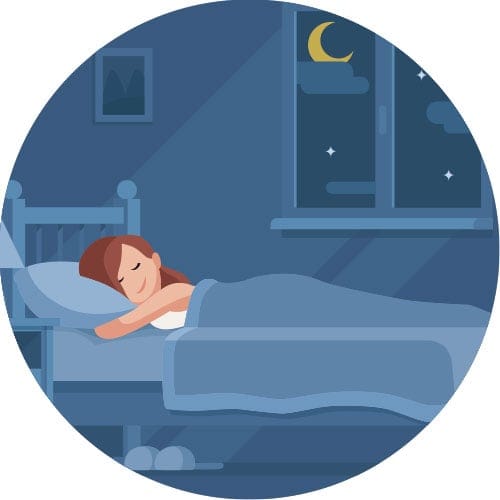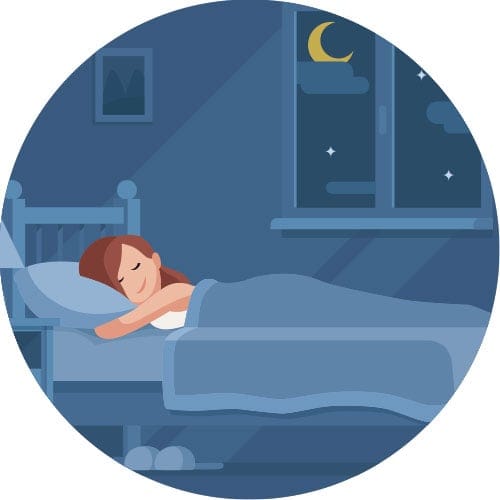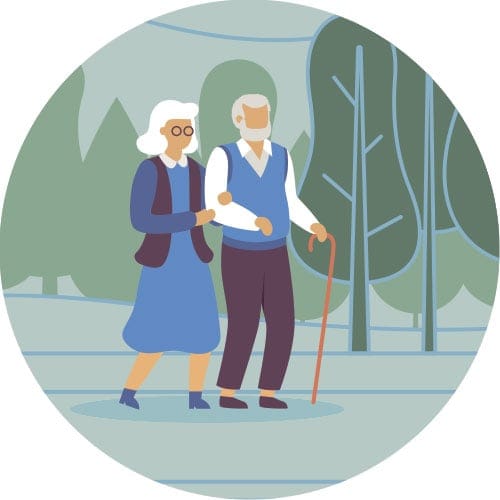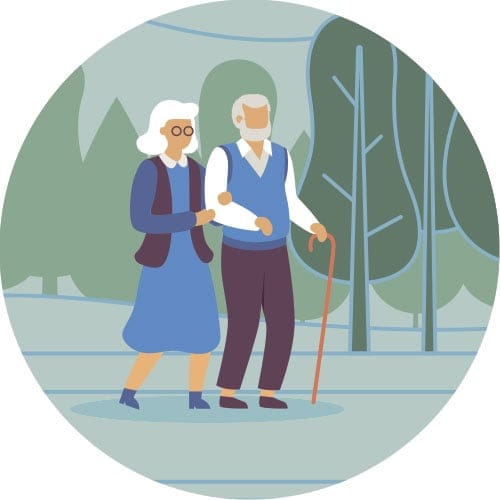
Our lifestyle impacts not only how long we live but also how well we live. Lifestyle is not only about adding years to life but also about adding life to the years. Though we want to live long, it’s equally important that we live well, have the best possible quality of life, and be able to do and achieve what we want in life.
A healthful, balanced lifestyle is not a guarantee against physical or mental illness, but it increases our chances of enjoying more years of health and happiness. And although it might be somewhat overlooked, lifestyle is as important to the mind as it is to the body. If we want our mind to be well, healthy, and happy—which in turn helps our bodies to be healthy—I recommend some key lifestyle principles to implement and practice.
 Sleep
Sleep
Getting adequate amounts of sleep is one of the best things we can do for our minds and bodies. We feel better after a good night’s sleep because our brains and our bodies are doing better. Sleep is restorative and rejuvenating. Although we’re not fully conscious, a lot of positive and absolutely necessary things are going on while we sleep.
On the opposite side, we feel sluggish after one or more nights of insufficient quantity or quality of sleep because our brains and bodies are suffering. Sleep deprivation destabilizes the brain, impairs memory function, and makes us more likely to swing between extremes of emotions. When the brain is underslept, the frontal lobe’s ability to control the centers of the brain that drive emotion, impulsivity, and reward seeking is significantly impaired. Thus, the risk of negative mood, irrational actions and decisions, aggression, behavioral problems, and addictions is significantly increased. Sleep disruption is a symptom of most mental illnesses; but beyond being a symptom, insufficient sleep in itself may lead to mental illness. A lifetime of insufficient sleep may also increase the risk of Alzheimer’s disease.1
Almost all adults need somewhere between seven to nine hours of quality sleep every night. That means seven to nine hours of actual sleep time, not simply that many hours in bed. Kids and teenagers need more. Unfortunately, many fail to get adequate amounts of sleep. When kids and teenagers don’t get enough sleep, the effects on mood and behavior are usually quite evident. Sleep deprivation also has the same effects on adults. The price to pay is immediate in the form of tiredness, fatigue, irritability, forgetfulness, irrationality, decreased productivity and creativeness, and so on.
Sleep is not a waste of time. It is one of the best investments we can make in our health and well-being. Being well rested is a prerequisite for functioning well. From the beginning, as we read in the book of Genesis, the day starts at sunset. Also, the first whole day for humankind was the Sabbath. This may be a reminder that in God’s creation, rest precedes activity. Rest and sleep are not what we do when all is done and there’s nothing left to do. Rather, let them precede everything we do, that we may do what we do well and enjoy life.
 Exercise
Exercise
Physical activity is one of the quickest ways to boost our moods. Within a few minutes of just about any activity we will be reaping benefits. Many of those who exercise regularly say that the positive effects it has on the mind are as important to them as the beneficial physical effects.
But there’s more to exercise than instant, desirable, short-term effects. The long-term benefits of exercise are well proven. People who exercise report significantly fewer days of poor mental health than people who don’t exercise.2 Exercise may have preventative as well as therapeutic benefits on various mental disorders, such as depression, anxiety, and others, as well as Alzheimer’s and Parkinson’s diseases.3
Our bodies were created to move and be physically active. But all around the world many live very sedentary lives with little if any demands for physical exertion. Physical activity has become optional, no longer a prerequisite for daily survival. But for well-being and long-term survival, physical activity is not optional. We need the activity our bodies were created for. If we don’t get it through our regular daily activities, we need to add exercise to our routines.
Have you ever watched how excited a dog becomes when it’s taken out for a walk? Our bodies are truly as happy for exercise as the dog anticipating the walk. It’s just that our minds don’t always get it. When we are tired or somewhat depressed and feel least like exercising, that may be when we need it most. Unfortunately, when we need it most, that’s when we are most likely to skip it. The good news is that anything is better than nothing. Whatever you decide to do, gradually increase from where you are until you get to where you want to be.
 Nutrition
Nutrition
The foods we eat and the fluids we drink become the bodies we are. If we want to build a good body, we have to make sure to use good raw materials. Likewise, if we want to build a well-functioning brain and healthy nervous system, we do well in being mindful of what we eat and drink. What we eat and drink affects not only our general well-being but also our vulnerability for mental illness.
“Diets higher in whole foods, such as vegetables, fruits, whole-grain cereals, beans and legumes, nuts and seeds, fish and olive oil, are consistently associated with a reduced risk of depression.”4 On the other side, “diets higher in ‘junk’ foods, such as sugar-sweetened drinks, fried foods, pastries, doughnuts, packaged snacks, and processed and refined breads and cereals are consistently linked to a higher risk of depression.”5 Similar results for anxiety and other mental disorders have been found. The good news is that a diet that is good for the mind is also good for the body.
 Relationships
Relationships
Beyond what happens inside our bodies, what happens between us, others, and God is of utmost importance for our mental well-being. We need to be connected to other people and to God. We were created as social beings, created for fellowship with God and with one another.
Even before sin entered this world, God declared that there was something that was not good, namely: “‘It is not good for the man to be alone’” (Gen. 2:18). This is a fundamental truth of the nature of humans. We need to be connected. We need intimate emotional bonds in nurturing relationships. In this world, in which we all experience hardships, we need the support and comfort of someone who is with us: the Lord above us and fellow men and women beside us.
Thus, Jesus’ command to love God and one another is also most excellent advice for sustaining good mental health. Remember His two commandments: “ ‘Love the Lord your God with all your heart and with all your soul and with all your mind and with all your strength.’ The second is this: ‘Love your neighbor as yourself.’ There is no commandment greater than these” (Mark 12:30, 31).
Torben Bergland, M.D., a psychiatrist, is an associate director of Adventist Health Ministries at the General Conference of Seventh-day Adventists.